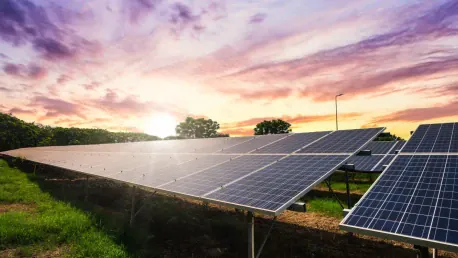The U.S. Department of Energy (DOE) recently announced a substantial $1.8 billion loan guarantee for Arizona Public Service (APS), aimed at boosting the state’s clean energy initiatives. The agency’s backing will fund several key projects intended to enhance renewable power generation and the integration of new technologies within the power grid. One of the cornerstone projects planned is a 150 MW/600 MWh Agave Battery Energy Storage System in Maricopa County, which will link directly with an existing solar facility. This battery energy storage project is designed to bolster grid stability, manage peak energy demands, and store excess renewable energy for later use. These efforts clearly reflect the broader trend towards renewable energy integration and improving grid reliability, which is a crucial factor in transitioning to a clean energy future.
APS customers stand to benefit significantly from this financing initiative by the DOE. The Loan Programs Office is expected to mitigate potential increases in electricity rates, thus projecting savings of approximately $250 million over the loan’s lifespan. However, to secure the loan and reap these benefits, APS (a subsidiary of Pinnacle West Capital) must navigate a complex array of technical, legal, environmental, and financial hurdles. Meeting these stringent criteria ensures that the investments will be sound and that the overarching goals of cleaner energy and grid reliability are achieved efficiently and sustainably.
Supporting Renewable Integration and Grid Reliability
With the DOE’s financial backing, APS is poised to make significant strides in its long-term energy goals. The loan is instrumental in supporting APS’s strategic efforts to phase out coal by 2031 and achieve 100% carbon-free electricity by 2050. As part of these goals, APS has outlined an interim target to source 45% of its electricity from renewable sources by 2030, underscoring a strong commitment to reducing carbon emissions and fostering sustainable energy practices. This comprehensive plan aligns with broader climate objectives, positioning Arizona as a leader in the adoption of renewable energy technologies.
The DOE’s loan guarantee also mandates that projects funded under this initiative must adhere to the Biden administration’s directive, which stipulates that 40% of federal energy and climate investments benefit disadvantaged communities. APS has already shown dedication to this cause by providing financial assistance to these communities and pledging future support. Notably, APS will extend financial contributions toward electrification projects benefiting the Hopi Tribe and the Navajo Nation, ensuring these communities have access to cleaner and more reliable energy sources. These efforts highlight the importance of inclusive clean energy transitions, where all communities benefit equitably.
Addressing Community and Economic Needs
In addition to backing renewable integration, the DOE’s loan focuses on creating a balanced approach to addressing the needs of various stakeholders, including disadvantaged communities. APS’s commitment to these communities is further emphasized by its pledge to contribute up to $17.5 million over seven years, starting from its departure from the Four Corners coal plant or by 2032, whichever comes earlier. This financial contribution will assist the Navajo Nation in developing transmission lines, ensuring greater energy access and promoting overall socioeconomic development within the nation. This forms part of a broader strategy to amplify the benefits of clean energy investments, extending far beyond mere environmental gains.
Rapid economic and population growth in Arizona, coupled with rising temperatures, has led to a spike in electricity demand. In August, APS recorded a peak demand of 8,212 MW, reflecting the pressing need for efficient energy management solutions to cater to the growing energy needs. In response to this demand surge, APS plans to join the Southwest Power Pool’s day-ahead and real-time energy market, expected to launch in 2027. This initiative aims to improve the efficiency and reliability of electricity supply, accommodating the increased demands while advancing toward the clean energy goals established by APS.
Future-Oriented Energy Transition
The U.S. Department of Energy (DOE) recently announced a $1.8 billion loan guarantee for Arizona Public Service (APS), aimed at promoting the state’s clean energy goals. This funding will support several projects to enhance renewable energy production and incorporate new technologies into the power grid. Key among these projects is the 150 MW/600 MWh Agave Battery Energy Storage System in Maricopa County, which will connect with an existing solar facility. This battery project is designed to stabilize the grid, manage peak energy demands, and store excess renewable energy for future use. These initiatives demonstrate the broader shift towards renewable energy integration and improving grid reliability, vital for a clean energy future.
APS customers will benefit significantly from this DOE initiative. The Loan Programs Office is expected to prevent potential increases in electricity rates, saving approximately $250 million over the loan’s life. However, to secure the loan and these benefits, APS (a subsidiary of Pinnacle West Capital) must overcome various technical, legal, environmental, and financial challenges, ensuring that the investments are both effective and sustainable.









